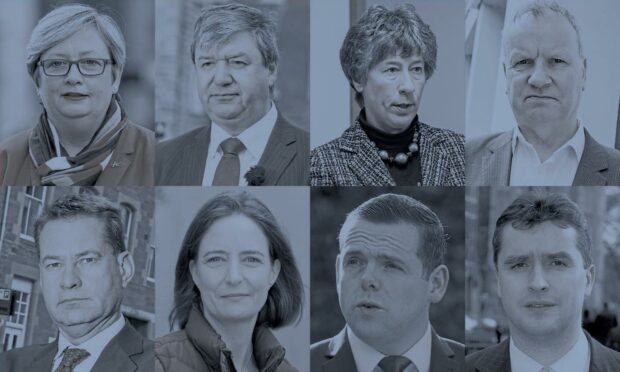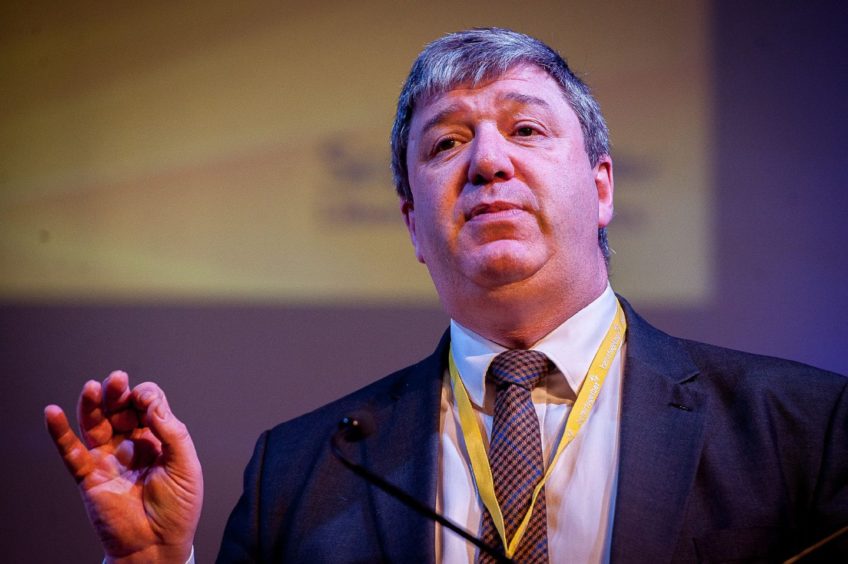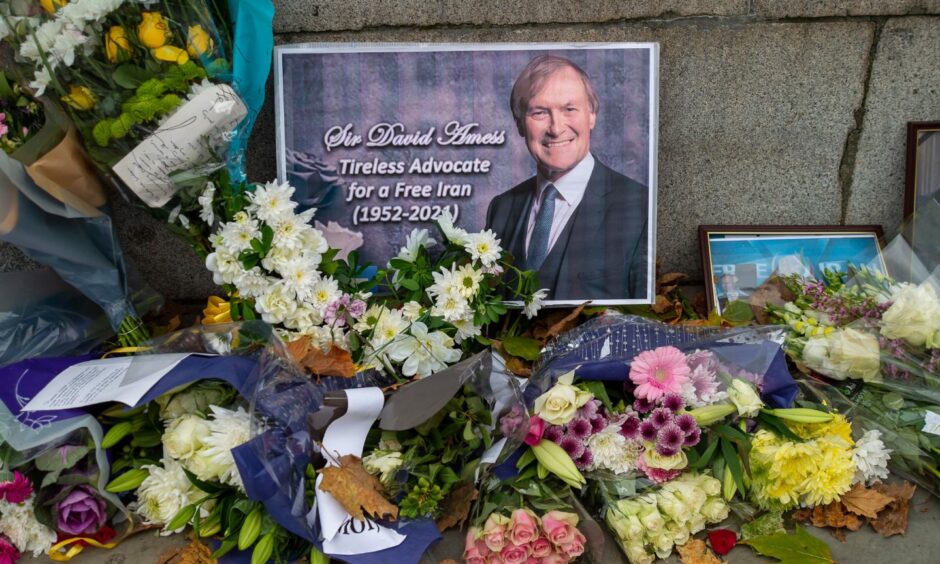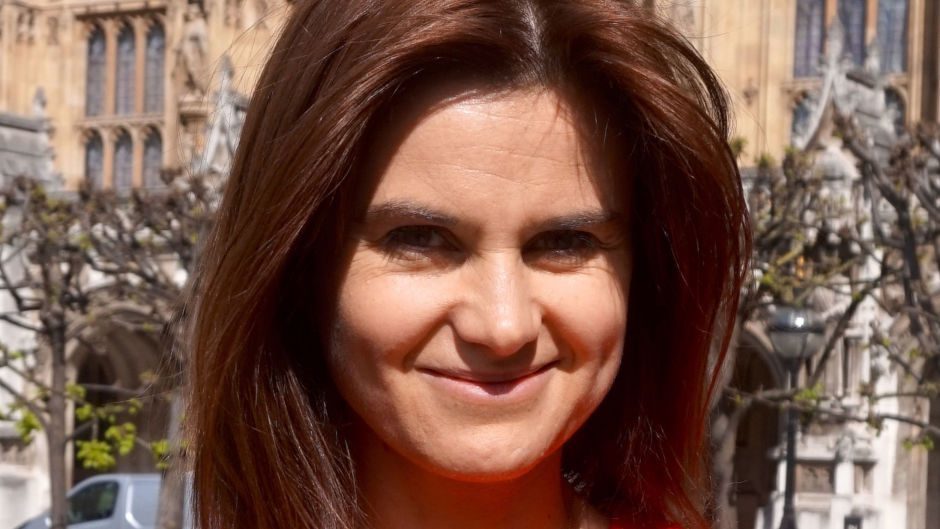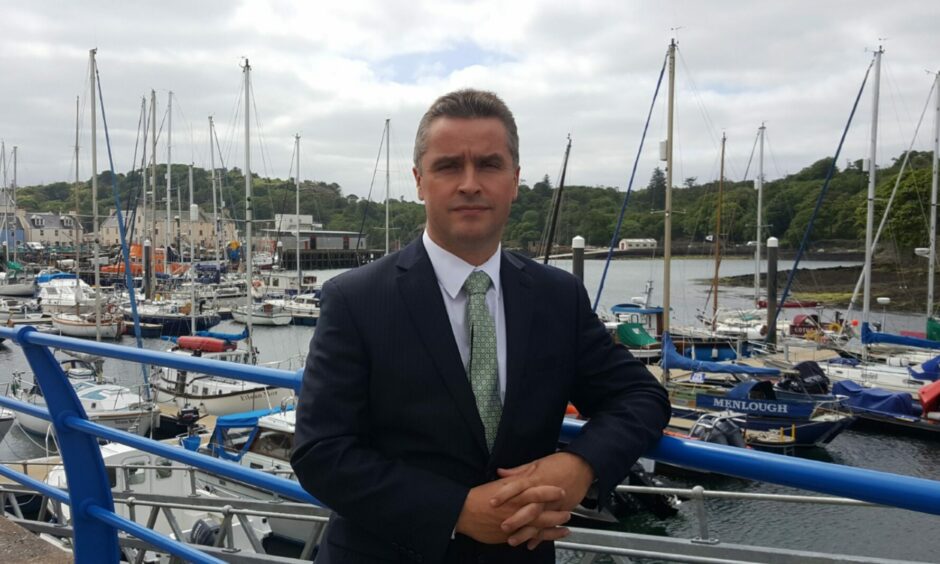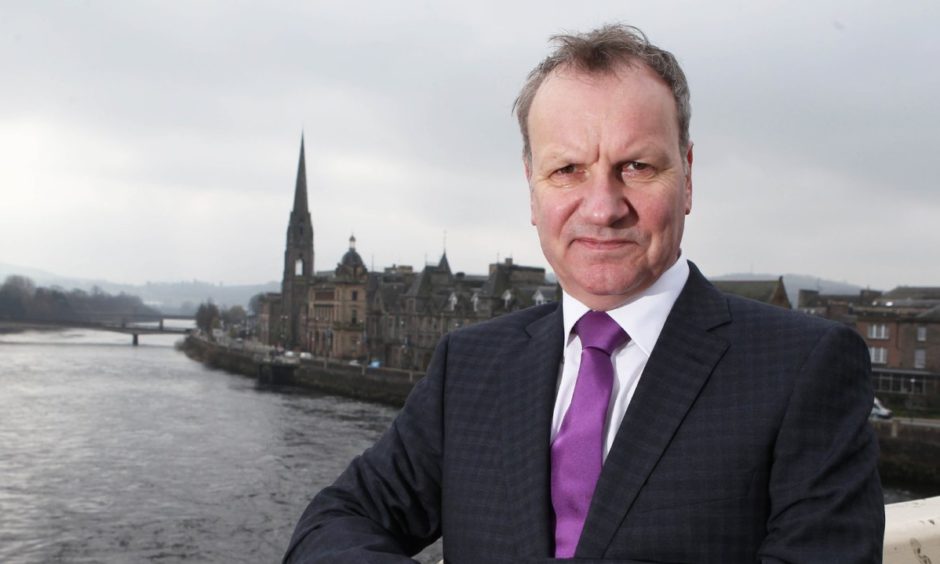Scottish politicians have laid bare the shocking abuse and death threats they receive from members of the public, with one MP revealing a chalk outline of a dead body was scrawled outside his office.
One week on from the death of MP Sir David Amess, who was stabbed during a constituency surgery last Friday, some of Scotland’s leading political figures have warned of the “visceral, poisonous and polarised nature” of our national debate.
We can reveal abuse, including an incident where an individual already subject to a restraining order contacted an SNP MP in the days following the death of Sir David, has forced politicians to reconsider how they interact with the public.
Orkney and Shetland MP Alistair Carmichael warned the level of abuse targeted at MPs is “way beyond anything that would have been accepted in 2001” when he was first elected, with the worst hate reserved for female or ethnic minority members.
Meanwhile Perth and North Perthshire MP Pete Wishart, who sits on the House of Commons Commission which looks at MPs’ security, said he will have to review the safety of his own constituency surgeries in the aftermath of the killing of Sir David.
25-year-old charged
Ali Harbi Ali, 25, appeared at the Old Bailey by video-link from high-security Belmarsh prison on Friday accused of murdering the Conservative MP.
His death is the latest in a string of shocking incidents involving sitting politicians, including the murder of Labour MP Jo Cox five years ago and the stabbing of East Ham MP Stephen Timms in May 2010.
Carol Monaghan, the SNP MP for Glasgow North West, was forced to move herself to a safe house following a death threat in 2019, while party colleague Joanna Cherry required a police escort to attend a constituency surgery because of a similar threat.
Earlier this year, a 63-year-old man was charged with threatening to shoot Scottish Conservative leader Douglas Ross in the head, and even Deputy Prime Minister Dominic Raab has received three threats to “life and limb” over the past two years.
Mr Carmichael, who as MP for Orkney and Shetland lives in the lowest crime post code in the country, said he had experience a number of incidents in the past, including a chilling message scrawled in chalk outside his office.
“Some of it social media-led, sometimes it comes through the post, sometimes it will be highly abusive emails,” he said.
“I once had a demonstration outside my office where somebody thought it was appropriate to chalk the outline of a dead body.
“In the past these things have been really upsetting for my staff, for my family, but I’ve shrugged it off and said it’s just something I have to put up with.
“I think in retrospect that was a mistake. You shouldn’t just shrug these things off and in the future I’ll call them out where I find them.”
Treating the symptom
Mr Carmichael said there is no simple cause but “anything that raises the temperature of debate, that dehumanises people in public life can lead you to a place where a tiny minority of people who would be violent feel vindicated in doing so”.
MPs are to be offered security guards to protect their constituency surgeries but Mr Carmichael warned anything that puts a barrier between MPs and constituents is “only treating the symptom when the underlying disease is the much more visceral, poisonous and polarised nature of our debate”.
Spending on MPs’ security has seen a huge expansion in the years following Jo Cox’s murder, with the amount rising from £171,000 in 2015-16 to £4.2 million in 2017-18.
According to Metropolitan police data, MPs reported 151 alleged crimes to the police in 2017, rising to 342 in 2018 – a 126% increase.
A 2019 survey of MPs by the BBC found that more than 60% of those who responded had contacted the police about threats received in the previous year.
Meanwhile, a third of MSPs taking part in a Holyrood magazine poll earlier this year said they had received a death threat since being elected.
An important balance
Conservative MSP Liz Smith said there is a “very important balance to be struck between elected members continuing to be available to meet constituents face to face and increasing security”.
Her party colleague, Murdo Fraser, said his team added “additional security measures” following the death of Jo Cox but would be reviewing the situation again.
“Politicians across the UK will now need to be extra vigilant,” he said. “It is important that we are accessible to the public but our safety, and that of our staff, is essential.”
Western Isles MP Angus MacNeil, another who lives in a low crime constituency, said that despite being “quite low on the potential danger scale” compared to members from city seats, he is “not without concern” on the issue.
Mr MacNeil said he is aware of other incidents, including one where a person learned the movements of an MP’s children and vandalised their office, and another where an MP was told they had two weeks to live.
“You’re kind of aware that there’s stuff on the go quite a lot,” he said.
“We all try to minimise it. I don’t talk about it because you don’t want to attract it or normalise it. You just vanish into the herd, you hope.”
Mr MacNeil said politicians are regularly forced to make a judgement on whether an abusive person could be mentally ill, capable of carrying out an attack, a potential terrorist, or just someone looking to rant.
He said the death of Sir David had made him “more aware of the potential”, and that it could lead to politicians pulling away from advertising surgeries on social media or choosing to speak to constituents via online video calling.
Safety review
House of Commons Commission member Pete Wishart said MPs have received briefings from the security forces following Sir David’s death and that he would be doing everything possible to make sure his own offices are secure.
“This weekend I’m not meeting any members of the public at all but if I was I would now be ensuring I was meeting them in my office, where there is a degree of security in place,” he said.
“I have to review how I will be doing surgeries in the rest of my constituency.
“I’d like to think that I’d be able to continue but I’m going to have to review the arrangements and ensure that an incident like what happened to David Amess would not be possible with the way I do my business in the constituency.”
Mr Wishart pointed to social media as being one of the biggest areas of concern because it often allows people to send anonymous abuse with little prospect of being identified.
He said: “We’ve got a very poisonous online environment where people seem to think it’s acceptable to call members of parliament any name under the sun or say particular things to us without any regard to the impact that has on feelings about safety.
“The environment around politicians has changed completely in the last decade, where people are able to say what they want and hide behind anonymity and feel like there is no consequences to their actions.”
Substantial threat
In a statement on Wednesday evening, Home Secretary Priti Patel told the Commons that intelligence officers had upgraded the threat level for MPs to “substantial”, meaning a fresh attack is deemed likely.
Ms Patel said there had been a “change in risk” after an independent review by the Joint Terrorism Analysis Centre. It is understood that the threat against MPs was previously deemed to be “moderate”, meaning an attack is “possible but not likely”.
The Speaker of the Commons, Sir Lindsay Hoyle, will make a statement on Monday before Boris Johnson moves a motion for an adjournment, which will enable parliamentarians to open a tributes session to Sir David.
